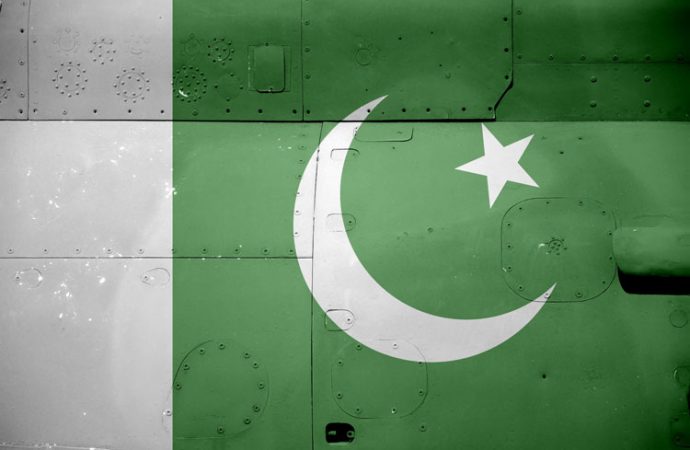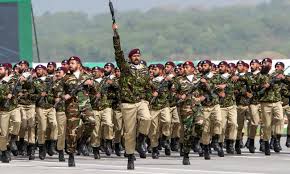Author Recent Posts Rabia Anwaar Latest posts by Rabia Anwaar (see all) Reignited Pak-Afghan Tensions: What Could Be the Way Forward? – November 4, 2025 Geopolitics and the Future of Gaza: Who Are the Real Stakeholders? – October 15, 2025 Iran’s Nuclear Ambitions and Israel’s Aggressive Dominance in the Region – July 15, 2025
The future of Pak-Afghan relations is fraying back to the past. The recent airstrikes by Pakistan on Afghan soil have significantly strained the already fragile bilateral ties. Pak-Afghan relationship holds a complex history, marked by periods of cooperation, mistrust, and conflict. Incidents of Pakistan’s attacks inside Afghanistan spans several decades, often intertwined with geopolitical dynamics, regional rivalries, uprooting terrorism and internal conflicts within both countries. Pak-Afghan quagmire and fragile diplomatic relations are subjected to some really crucial reasons, the consequences of which could be unhealthy for both states. The potential deterioration of Pakistan-Afghanistan relations following airstrikes by Pakistan on Afghan soil could have far-reaching implications for regional stability, security, and cooperation. The airstrikes are claimed to have caused breach of sovereignty of Afghanistan, which could result in escalation of violence as a result of counterfeit attacks, further erosion of trust, delay in restoration of peaceful ties and halt trade between two states.
Pakistan had a fallacy when the Taliban rose to power in August 2021 that TTA government would prove better in its favor. However, Afghan Taliban gave Pakistan a reality check by supporting and abetting Tehreek e Taliban Pakistan (TTP), providing them safe havens and with their soil to launch attacks on Pakistan’s territory. It should come as no surprise that the TTP is finding safe haven in Afghanistan. Given the current situation and the regime in control of Afghanistan, the environment is conducive to most extremist groups, with the TTP being just one among several. Pakistan’s recent expulsions of Afghan refugees further compounded this issue, as many families associated with the TTP were pushed into Afghanistan. These factors are, undoubtedly, posing direct threat to Pakistan’s security, stability, progress and prosperity. Thus, the reaction is obvious and the escalation of rift is predictable.
One obvious reason for sore bilateral relations between the two is the banned outfit of TTP and its unwavering support by TTA. The Afghan officials claim that their territorial sovereignty has been compromised when in March, Pakistan retaliated promptly through the launch of airstrikes. In the wake of resurgence of terrorism in Pakistan, it lately conducted ‘intelligence-based anti-terrorist operations’ on 19th March, 2024, to eliminate safe hideouts of this banned terrorist organization. Such actions are seen by Afghan authorities as an affront to Afghanistan’s national sovereignty, leading to a breakdown in diplomatic relations and trust between the two countries. The sensitivity of the issue can be assessed through the official statement of Afghan’s spokesperson, Islamic Emirate of Afghanistan does not allow anyone to compromise security by using Afghan territory.
Another critical factor contributing to the deterioration of Pakistan-Afghanistan relations would be the further erosion of trust and diplomatic channels between the two nations. Pakistan and Afghanistan have many commonalities. Beginning from shared borders; they have religion, culture, language and ethnicity in common. Despite having many factors in common, the core interests of both the states and their ideology significantly differ. Trust forms the foundation of any bilateral relationship, particularly between neighboring countries with shared interests and challenges. However, Pakistan’s attack on Afghan soil would shatter whatever trust remains between the two governments, making diplomatic engagement and conflict resolution extremely challenging. Diplomatic channels, which are essential for resolving disputes and addressing mutual concerns, and are severely strained in the aftermath of such an attack. Both countries may resort to retaliatory measures, such as diplomatic expulsions or economic sanctions, further exacerbating tensions and deepening the rift between them. Furthermore, the lack of trust would hinder future attempts at cooperation on critical issues such as border security, counter-terrorism, and economic development. Without effective diplomatic channels, resolving conflicts and addressing shared challenges would become increasingly elusive, perpetuating the cycle of animosity and distrust.
A significant consequence of Pakistan’s attack in Afghanistan would be the escalation of violence and instability in the region. Afghanistan has been grappling with persistent security challenges, including insurgency and terrorism. Any military intervention by Pakistan could exacerbate these challenges by further destabilizing the security landscape. Pakistan’s actions may prompt retaliatory measures from Afghan forces or militant groups operating within Afghanistan, leading to a cycle of violence and counter-violence. Moreover, such incidents could provide a pretext for militant groups to exploit the situation and escalate their activities, posing a grave threat to regional stability and security. The escalation of violence would not only hinder efforts towards peace and reconciliation but also exacerbate the already occurring humanitarian crisis in Afghanistan, displacing communities and aggravating the suffering of civilians caught in the crossfire.
It is a matter of miscalculations and nothing else. For years, Islamabad believed that with the Afghan Taliban assuming control of Kabul not only would the threat of the TTP vanish, but also the opening of land routes to the lucrative markets of Central Asia and Eastern Europe would trigger the economic rejuvenation desperately sought by the financially crippled nation. However, three years later in March 2024, Pakistan has launched a second strike against Afghanistan and repatriated Afghan refugees who had long called Pakistan home since the Russian invasion. Moreover, Pakistan is deploying additional troops along the border as Afghanistan starts to retaliate for the airstrikes. Nothing happening right now is a surprise to Pakistan but an already precedented matter. The question juggling in my mind is that what has Pakistan learned so far from its historical experience whereby already precedented protracted conflict with a neighboring nation has caused it immense damage beyond expectations? What’s new? What’s next?
- Reignited Pak-Afghan Tensions: What Could Be the Way Forward? - November 4, 2025
- Geopolitics and the Future of Gaza: Who Are the Real Stakeholders? - October 15, 2025
- Iran’s Nuclear Ambitions and Israel’s Aggressive Dominance in the Region - July 15, 2025






















Leave a Comment
Your email address will not be published. Required fields are marked with *